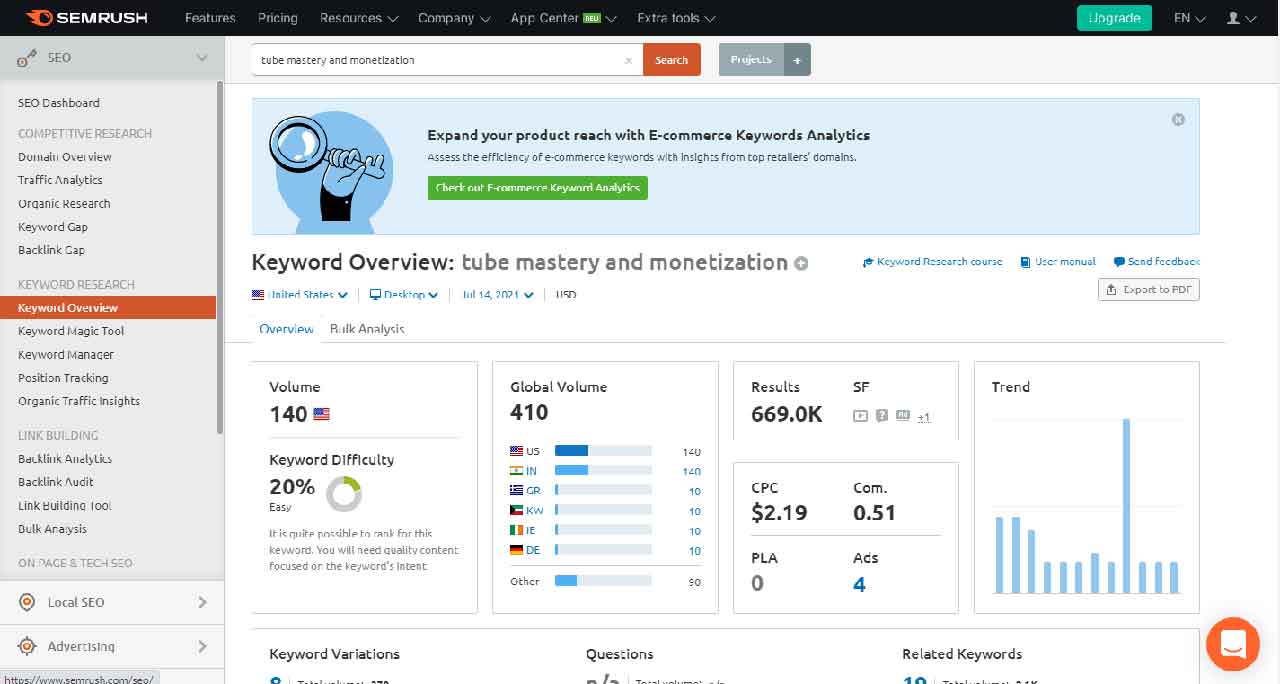Want to find the low competition and long-tail keywords for your content to rank on the Google top? This blog is for you.
The keyword is a phrase or sentence that the audience search on the search engines (Google) to find the content they look for.
For this purpose, the writers use the keywords in the content to show in top search result pages.
Nowadays the competition is high, but there’re many topics that don’t touch anyone yet. If you write quality content on these topics, there’s more chance to rank your content.
For this purpose, You have to do keyword research to find the long tail and low competition keywords relevant to your topic.
Table of Contents
How To Find The Low Competition & Long-Tail Keywords Via Keyword Research Tools?
There’re many tools that you can use to find low competition and long-tail keywords. The most popular tools are listed below.

#1. Google Keyword Planner
The Google Keyword Planner is one of the most popular keyword tools. It’s the google ads tool that shows the lists of keywords with the search volume and PPC rate.
How to find the low competition and long-tail keywords using Google Keyword Planner?
For instance, you’re finding the keyword for “digital marketing”. You have to follow these steps.
- Click here to visit the google keyword planner main page.
- Now click the “Discover new keywords“.
- There you have to search the “digital marketing” keyword in the search bar.
- Once you search the keyword, the tool will show a list of keywords with the competition (low, medium, high), search volume, and PPC rate. The digital marketing keyword competition is medium. It means that Google already has a lot of content for this keyword. There’s a little chance to rank your content on this keyword.
- Scroll down and look for the keywords which have low competition and show PPC rate with good search volume.
- 6. Finally, I have found a keyword “Online marketing agency” that has low competition and good search volume (1K-10K).
- Select the keyword and then include it in the content.
#2. SEMRush
Semrush is another keyword tool that shows keywords difficulty, relevant keywords, keyword variations, questions, global volume, specific country volume, results, trends, CPC, ads, ad copies, keyword ad history SERPs analytics, and more for the keywords.
Get 30 days free trial to benefit from its tools because it enables you 50+ SEO tools.
Once you gain a free trial, You will view the main page of the keyword tool, search the keyword, and I search the “tube mastery and monetization” keyword here.
The keyword difficulty is low and easy to rank if you write quality content and follow the SEO guidelines.
#3. Allintitle Or Allinurl
It’s a technique that you should use to find how much content google has for this keyword.
Follow these steps to know how much content has used this keyword in the content title and URL.
- Open the browser.
- Add the allintitle: or allinurl:, plus space, and then write your keyword. For instance, I write “allintitle: tube mastery and monetization by matt par 2021“.
- Search it.
As you can see that Google has 79 results that have used this keyword in their title.
Thus, you can know how much content is available on Google for the keyword.
#4. Google Autofill
The easy way to find the long-tail keywords is the google autofill. simply search your keyword or phrase+ space, There will appear more keywords.
In addition, for the keyword detail, you can use the keyword tools.
#5. Look At Google’s Related Searches
Another way to find the relevant keywords is “Google’s related searches“. At the bottom of every search result page, you can view it. You can use these keywords in your content.
#6. Ubersuggest
Ubbersuggest tool shows the keyword difficulty, search volume, paid difficulty, CPC, keywords idea, content idea, and more of a keyword. This tool lets you free searches of keywords with some limitations, for more keyword research, you need a paid subscription.
#7. Look For User-Generated Questions On Quora
Quora is a platform that is used for Q&A (Questions And Answers). Quora is the biggest question and answer platform. The users ask the question and the experts answer their questions.
It allows you to find the questions that users ask relevant to your keywords. Simply, search your topic or keyword to find the popular questions to use in the content. There’s more chance for the evergreen content using these question ideas.
Additionally, you can find the keyword ideas on other Q&A websites including answers.com and yahoo answers.
#8. Buzz Sumo
The Buzz Sumo is one of the keyword tools that provide comprehensive data of the keywords. Additionally, it provides you the more tools and features that help you to find the trending, topics, questions, content analyzer, finding the influencers and authors on social media platforms, and more.
#9. Moz
The Moz website has many SEO tools, one of them is keyword explorer. You’re just 4 steps away to use the Moz keyword explorer tool that searches your keyword or URL to find the best keywords for it, create your account, verify your email and view the keyword comprehensive data and suggestions.
You should benefit from the above ways and tools to find the low competition and long-tail keywords, these keywords will rank your content at top of search results.
Read More: Liquid Web VS Nexcess | Which one is best for you?





